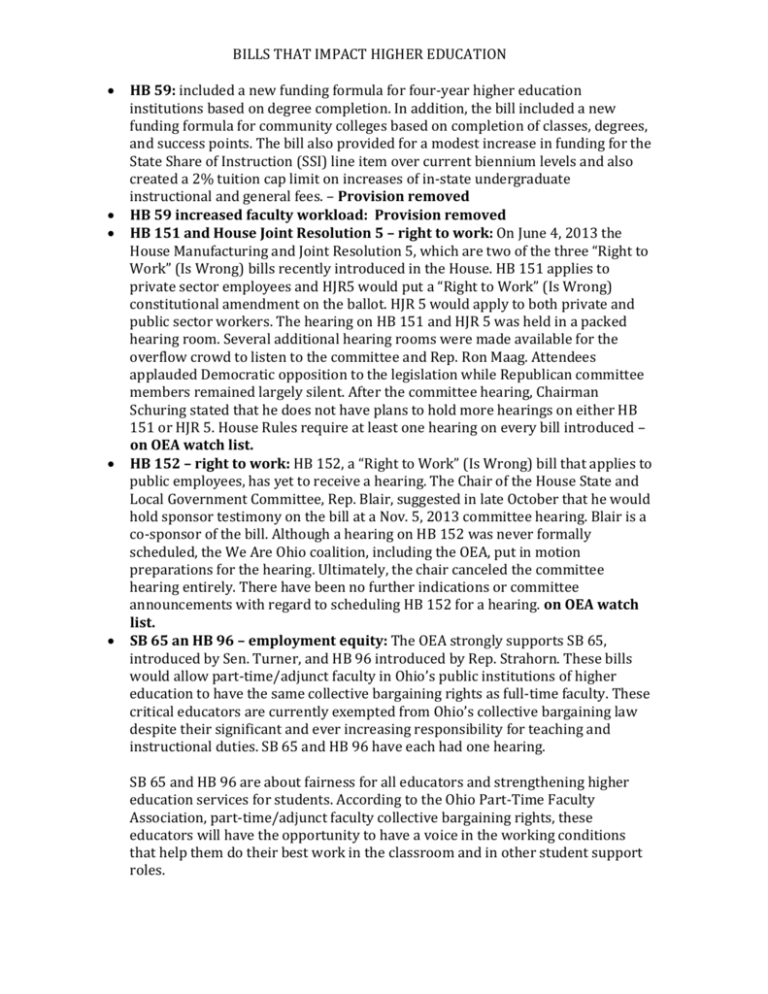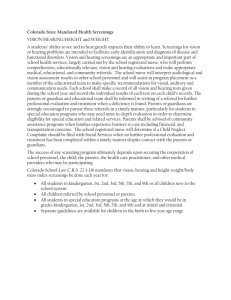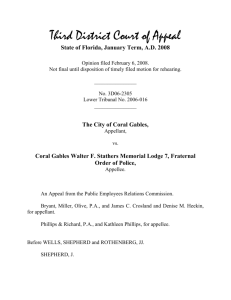OEA Higher Education Legislative Update - YSU-OEA
advertisement

BILLS THAT IMPACT HIGHER EDUCATION HB 59: included a new funding formula for four-year higher education institutions based on degree completion. In addition, the bill included a new funding formula for community colleges based on completion of classes, degrees, and success points. The bill also provided for a modest increase in funding for the State Share of Instruction (SSI) line item over current biennium levels and also created a 2% tuition cap limit on increases of in-state undergraduate instructional and general fees. – Provision removed HB 59 increased faculty workload: Provision removed HB 151 and House Joint Resolution 5 – right to work: On June 4, 2013 the House Manufacturing and Joint Resolution 5, which are two of the three “Right to Work” (Is Wrong) bills recently introduced in the House. HB 151 applies to private sector employees and HJR5 would put a “Right to Work” (Is Wrong) constitutional amendment on the ballot. HJR 5 would apply to both private and public sector workers. The hearing on HB 151 and HJR 5 was held in a packed hearing room. Several additional hearing rooms were made available for the overflow crowd to listen to the committee and Rep. Ron Maag. Attendees applauded Democratic opposition to the legislation while Republican committee members remained largely silent. After the committee hearing, Chairman Schuring stated that he does not have plans to hold more hearings on either HB 151 or HJR 5. House Rules require at least one hearing on every bill introduced – on OEA watch list. HB 152 – right to work: HB 152, a “Right to Work” (Is Wrong) bill that applies to public employees, has yet to receive a hearing. The Chair of the House State and Local Government Committee, Rep. Blair, suggested in late October that he would hold sponsor testimony on the bill at a Nov. 5, 2013 committee hearing. Blair is a co-sponsor of the bill. Although a hearing on HB 152 was never formally scheduled, the We Are Ohio coalition, including the OEA, put in motion preparations for the hearing. Ultimately, the chair canceled the committee hearing entirely. There have been no further indications or committee announcements with regard to scheduling HB 152 for a hearing. on OEA watch list. SB 65 an HB 96 – employment equity: The OEA strongly supports SB 65, introduced by Sen. Turner, and HB 96 introduced by Rep. Strahorn. These bills would allow part-time/adjunct faculty in Ohio’s public institutions of higher education to have the same collective bargaining rights as full-time faculty. These critical educators are currently exempted from Ohio’s collective bargaining law despite their significant and ever increasing responsibility for teaching and instructional duties. SB 65 and HB 96 have each had one hearing. SB 65 and HB 96 are about fairness for all educators and strengthening higher education services for students. According to the Ohio Part-Time Faculty Association, part-time/adjunct faculty collective bargaining rights, these educators will have the opportunity to have a voice in the working conditions that help them do their best work in the classroom and in other student support roles. BILLS THAT IMPACT HIGHER EDUCATION These bills would benefit both students and higher education institutions by enhancing the instructional and learning conditions that support student achievement. Further, they would help Ohio compete for the best parttime/adjunct faculty by putting the state on par with other states that already provide these educators with collective bargaining rights.









